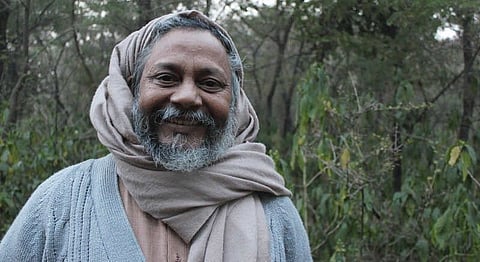
- HOMEGROWN WORLD
- #HGCREATORS
- #HGEXPLORE
- #HGVOICES
- #HGSHOP
- CAREERS
- ABOUT US
- CONTACT US

“When we started our work, we were only looking at the drinking water crisis and how to solve that. Today, our aim is higher. This is the century of exploitation, pollution and encroachment. To stop all this, to convert the war on water into peace, that is my life’s goal.”
Rajendra Singh, known as the ‘Jal Purush’ or ‘Waterman of India’, has been awarded what is known as the ‘Nobel Prize for water’ for his efforts, which brought water to 1, 000 villages in the arid state of Rajasthan. Using a modern version of ancient Indian techniques of rainwater harvesting, his methods are cheap and simple; with judges suggesting that they be followed worldwide. The cash prize of 1,50,000 dollars is to be conferred upon the activist hailing from the Alwar district of Rajasthan, by Sweden’s King Carl Gustav during the world water week. “Through the Indian wisdom of rainwater harvesting, we have made helpless, abandoned, destitute and impoverished villages prosperous and healthy again,” Singh said in a statement.
The rainwater harvesting pioneer’s methods involve building low-level banks of earth to regulate the flow of water during monsoons, allowing it to seep underground for future use. Previously an Ayurvedic doctor in a rural village, he joined Tarun Bharat Sangh in 1981 after realising that it was the drinking water crisis which was the biggest problem in the state, as opposed to health care. Groundwater had been depleted, crops were failing and rivers, forests and biodiversity stood at risk as people left their homes for towns in search of a better life.
Singh eventually witnessed the entire board of the Tarun Bharat Singh resign after their activities with questionable results were scrutinised by him; undaunted, he went on to sell off his own household goods to spearhead the group and work towards its goals. He has succeeded in saving five life-giving rivers in Rajasthan with the help of villagers with whom he built dams and 8, 600 rainwater storage tanks known as johads. In 1986, he constructed a johad at the source of Arvari River which had dried up completely with the help of people of Bhanota-Kolyala village, and volunteers. With the establishment of 375 earthen check dams that impound water, the river started flowing again slowly and by 1995, Arvari became perennial river (watch a documentary on it here). It was even awarded the ‘International River Prize’.
Singh’s efforts have also prevented floods, restored soil quality and breathed life into wildlife in the region. Katherine Pygott, a leading UK water engineer, has applauded the conferring of the award, having drawn on Singh’s work herself to help prevent flooding in the UK. His lessons have also been declared as essential by the Stockholm International Water Institute, as global climate change is causing a shift in weather patterns across the globe.
”In a world where demand for freshwater is booming, we will face a severe water crisis within decades if we do not learn how to better take care of our water. Mr Singh is a beacon of hope,” the director of the Swedish institute, Torgny Holmgren said. The judges also added that today’s water problems cannot be solved by science or technology alone, but are in fact human problems of governance, policy, leadership, and social resilience.
Ranjendra Singh’s life work is characterised by his involvement with the community, building ‘social capacity to solve local water problems through participatory action’ and in 2001, he was awarded the Ramon Magsaysay Award for Community Leadership. Singh has also been actively involved in the empowerment of women and linking indigenous know-how with modern scientific and technical approaches to merge the best of both worlds to work towards development and optimum resource use.
While it is gratifying to hear that three decades of his work are being appreciated at the global level, let’s hope our government too turns its attention to issues like these that actually matter, and recognise the value of the work being done at the grassroots level that is affecting change in the lives of thousands in a tangible way.
